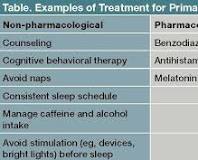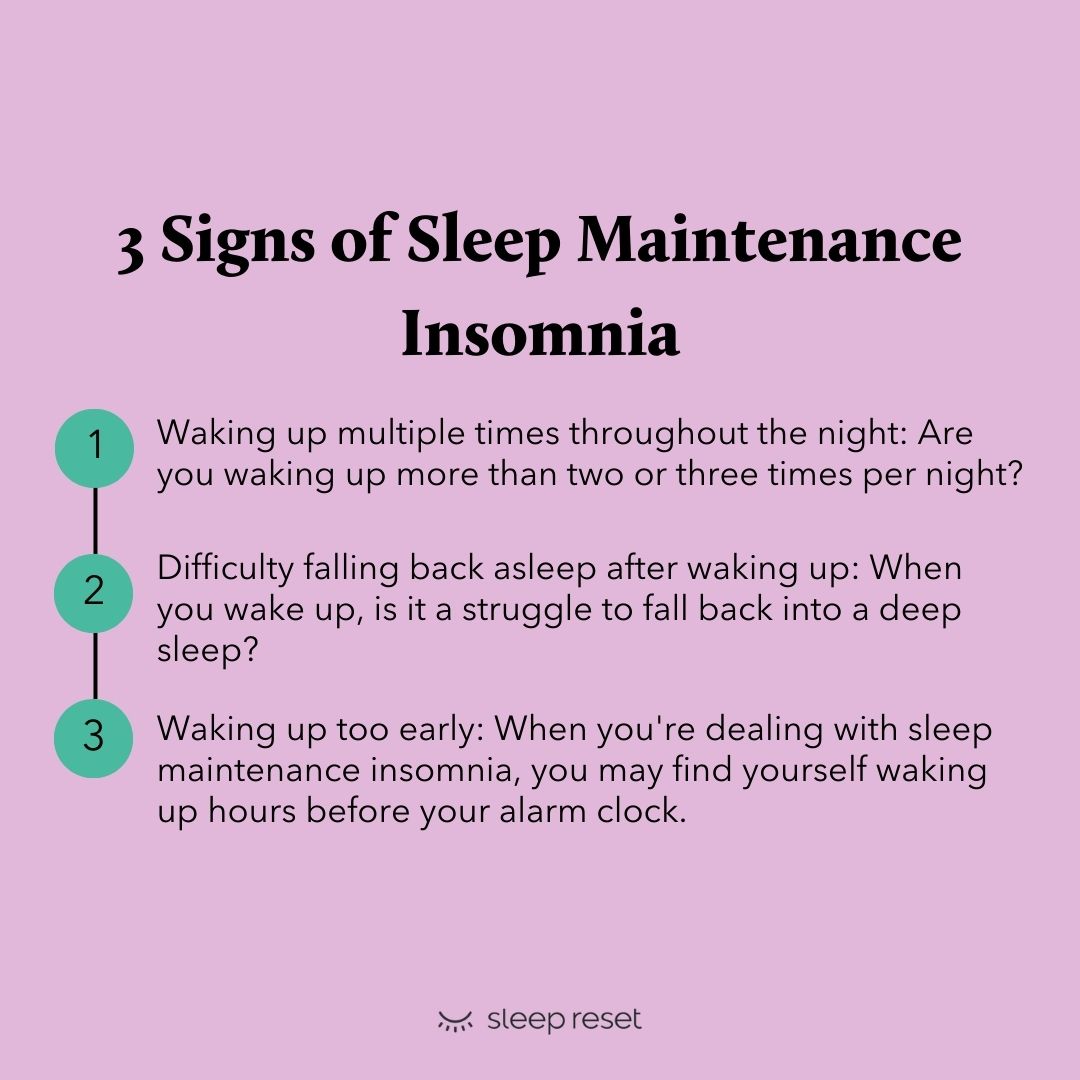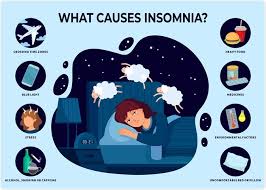Understanding Primary Insomnia
Primary insomnia is a sleep disorder characterized by difficulty falling asleep or staying asleep, or poor quality of sleep, without any underlying medical or psychiatric condition causing it. It is a common condition that can significantly impact one’s daily functioning and overall well-being.
Symptoms of Primary Insomnia
The symptoms of primary insomnia may include:
- Difficulty falling asleep at night
- Frequent awakenings during the night
- Waking up too early and being unable to fall back asleep
- Non-restorative sleep, feeling tired even after a full night’s rest
- Daytime fatigue, irritability, and difficulty concentrating
Causes of Primary Insomnia
The exact causes of primary insomnia are not fully understood, but several factors may contribute to its development:
- Stress and anxiety
- Irregular sleep schedules or poor sleep habits
- Environmental factors such as noise or light disturbances
- Certain medications or substances like caffeine or alcohol
- Underlying psychological issues like depression or chronic stress
Treatment for Primary Insomnia
Treating primary insomnia often involves a combination of lifestyle changes, behavioral therapies, and in some cases, medication. Some common treatment approaches include:
- Establishing a regular sleep schedule and bedtime routine
- Avoiding stimulants like caffeine and nicotine close to bedtime
- Cognitive-behavioral therapy for insomnia (CBT-I) to address negative thought patterns related to sleep
If you suspect that you may be experiencing symptoms of primary insomnia, it is important to consult with a healthcare provider or a sleep specialist for proper evaluation and guidance on managing your condition. With the right approach and support, individuals with primary insomnia can improve their sleep quality and overall quality of life.
Benefits of Addressing Primary Insomnia: Improved Sleep, Health, and Daily Functioning
- Primary insomnia can often be effectively managed with lifestyle changes and behavioral therapies.
- Treating primary insomnia may lead to improved sleep quality and overall well-being.
- Addressing primary insomnia early on can help prevent its negative impact on daily functioning.
- Individuals with primary insomnia have the opportunity to develop healthier sleep habits and routines.
- Managing primary insomnia can reduce the risk of developing more serious sleep disorders or health conditions.
- Seeking treatment for primary insomnia can enhance one’s ability to focus, concentrate, and perform tasks effectively.
Understanding the Hidden Costs of Primary Insomnia: Daytime Fatigue, Mental Health Risks, and Physical Health Impacts
- Primary insomnia can lead to daytime fatigue and decreased productivity due to inadequate sleep.
- Persistent primary insomnia may increase the risk of developing mental health issues such as anxiety or depression.
- Chronic primary insomnia can impact overall physical health, including an increased risk of cardiovascular problems and weakened immune function.
Primary insomnia can often be effectively managed with lifestyle changes and behavioral therapies.
Primary insomnia presents a notable advantage in that it can frequently be successfully addressed through lifestyle modifications and behavioral interventions. By implementing changes in daily routines, sleep habits, and stress management techniques, individuals experiencing primary insomnia can significantly improve their sleep quality and overall well-being. Behavioral therapies, such as cognitive-behavioral therapy for insomnia (CBT-I), offer tailored strategies to address negative thought patterns and behaviors that may contribute to sleep difficulties. This proactive approach empowers individuals to take control of their sleep health and enhance their quality of life without relying solely on medication.
Treating primary insomnia may lead to improved sleep quality and overall well-being.
Treating primary insomnia can have a transformative impact on one’s life, as it has the potential to enhance sleep quality and overall well-being. By addressing the root causes of insomnia through targeted interventions such as lifestyle modifications, behavioral therapies, and, if necessary, medication, individuals can experience more restful and rejuvenating sleep. Improved sleep quality not only contributes to physical health but also positively influences mental clarity, emotional stability, and daily functioning. Ultimately, by effectively managing primary insomnia, individuals have the opportunity to reclaim their vitality and enjoy a higher quality of life.
Addressing primary insomnia early on can help prevent its negative impact on daily functioning.
Addressing primary insomnia early on can help prevent its negative impact on daily functioning. By recognizing and treating sleep disturbances at an early stage, individuals can avoid the detrimental effects of poor sleep on their cognitive abilities, mood regulation, and overall productivity. Proactive intervention through lifestyle adjustments, behavioral therapies, and professional guidance can significantly improve sleep quality and mitigate the potential long-term consequences of untreated primary insomnia.
Individuals with primary insomnia have the opportunity to develop healthier sleep habits and routines.
Individuals with primary insomnia have the opportunity to develop healthier sleep habits and routines as they navigate the challenges of their condition. By consciously focusing on improving their sleep hygiene, such as establishing a consistent bedtime routine, creating a calming sleep environment, and practicing relaxation techniques, individuals with primary insomnia can take proactive steps towards enhancing the quality of their sleep. This process of self-discovery and adjustment not only aids in managing insomnia symptoms but also promotes overall well-being and a more restful night’s sleep.
Managing primary insomnia can reduce the risk of developing more serious sleep disorders or health conditions.
Managing primary insomnia can play a crucial role in reducing the risk of developing more serious sleep disorders or health conditions. By addressing and effectively treating primary insomnia early on, individuals can potentially prevent the escalation of their sleep disturbances into more complex and chronic issues. Improving sleep quality and patterns not only enhances overall well-being but also contributes to better physical and mental health outcomes in the long run. Prioritizing the management of primary insomnia can have far-reaching benefits for one’s overall health and quality of life.
Seeking treatment for primary insomnia can enhance one’s ability to focus, concentrate, and perform tasks effectively.
Seeking treatment for primary insomnia can significantly enhance one’s ability to focus, concentrate, and perform tasks effectively. By addressing the underlying sleep disturbances and improving sleep quality, individuals with primary insomnia can experience increased cognitive function, better attention span, and improved productivity throughout the day. Effective treatment can help alleviate daytime fatigue and mental fog, allowing individuals to approach their daily responsibilities with clarity and efficiency.
Primary insomnia can lead to daytime fatigue and decreased productivity due to inadequate sleep.
One significant con of primary insomnia is its potential to result in daytime fatigue and reduced productivity as a consequence of insufficient sleep. Individuals struggling with primary insomnia often experience difficulties in maintaining alertness and focus throughout the day, which can hinder their ability to perform daily tasks efficiently. The persistent lack of restorative sleep can lead to feelings of exhaustion, impacting cognitive function and overall productivity levels.
Persistent primary insomnia may increase the risk of developing mental health issues such as anxiety or depression.
Persistent primary insomnia, if left untreated, can significantly elevate the risk of developing mental health issues such as anxiety or depression. The chronic sleep deprivation and disruption in sleep patterns associated with primary insomnia can negatively impact one’s emotional well-being and cognitive functioning, making individuals more vulnerable to mood disorders. Addressing primary insomnia promptly through appropriate interventions is crucial in mitigating the potential escalation of mental health concerns and promoting overall wellness.
Chronic primary insomnia can impact overall physical health, including an increased risk of cardiovascular problems and weakened immune function.
Chronic primary insomnia, if left untreated, can have detrimental effects on one’s physical health. Studies have shown that prolonged sleep deprivation associated with this condition can lead to an increased risk of cardiovascular issues such as hypertension, heart disease, and stroke. Additionally, the body’s immune system may become compromised due to inadequate rest, making individuals more susceptible to infections and illnesses. It is crucial to address primary insomnia promptly to mitigate these risks and safeguard overall well-being.



